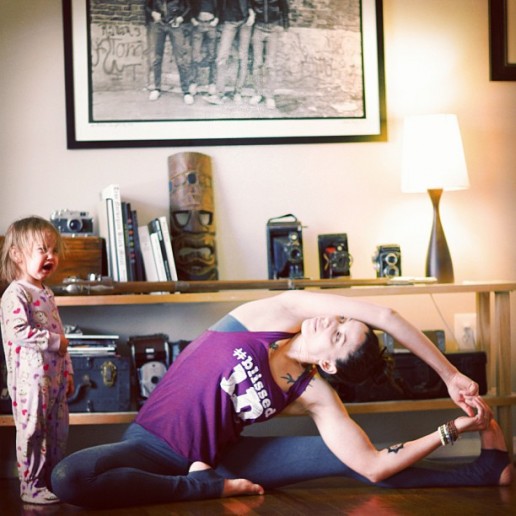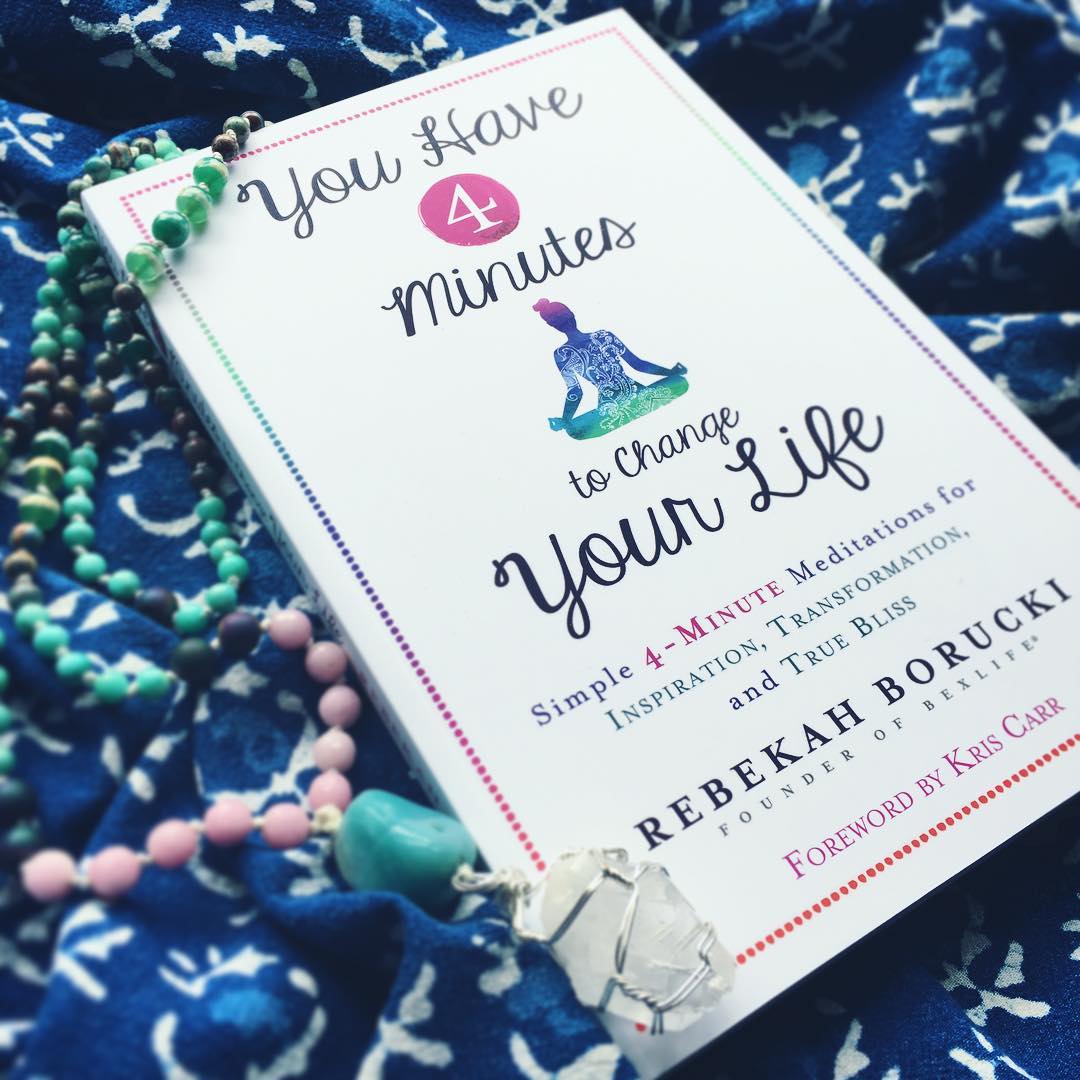Q: IS MEDITATING AFTER A WORKOUT A GOOD IDEA? I SAW A GIRL CRYING DURING MEDITATION TODAY. IS THAT NORMAL?
A: So many people neglect allowing themselves a transition time between intense activities, but even something as simple as a little quiet transition time in the car is so beneficial for the mind and body. Carve out time for yourself to sit and be still between a workout/work/yoga/school and carrying on with your other responsibilities. This may be a time to practice a short meditation.
Is it normal to cry during meditation? TOTALLY! People cry in meditation all the time. It actually happens a ton in yoga class when new muscle groups are stretched or an opening happens (for women, the hips have it). Whenever someone starts removing mental distractions (through meditation) or physical blocks (in a workout or asana), all kinds of joys and pains will become clearer and more apparent. And feelings don’t just get trapped in the heart, but the physical body as well. Have you ever had a stress headache or pain in your chest from heartbreak? That’s your body reacting to non-physical pain. Have you ever had a sudden burst of energy or an overall feeling of wellness when you hear good news?
⇢ Good vibes make for good bodies ⇠
Emotional openings are so important to the evolution of our spirit. We hide and bury our feelings constantly for the sake of self-preservation. It’s in our DNA. It’s a survival technique that is passed on from our pre-historic ancestors. Meditation allows us to transcend the trappings of being human, to open doors to hidden emotions, and to get in touch with God and our higher selves.


Rebekah “Bex” Borucki, founder of BexLife.com and the Blissed In® wellness movement, is a mother-of-five, TV host, meditation guide, author, speaker, birth doula, fitness and yoga instructor, and popular social media personality. Her first book, You Have 4 Minutes to Change Your Life (Hay House 2017), is available now, wherever books are sold.
DISCLAIMER: This post/video is designed for educational and/or informational purposes only and should not be used in any other manner. This information is not intended to substitute informed medical advice. You should not use this information to diagnose or treat a health problem or disease without consulting with a qualified healthcare provider. A consultation with your healthcare professional is the proper method to address your health concerns. You are encouraged to consult your healthcare provider with any questions or concerns you may have regarding your condition.



